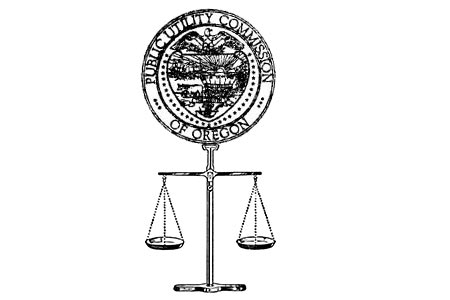PGE Seeks Recovery for New Operations Center, Other Expenses in Latest Rate Case
Posted on November 12, 2021 by Will Gehrke
Tags, Energy

CUB has written opening testimony in response to Portland General Electric (PGE)’s proposed rate increase. Within that testimony, CUB has proposed to refund several million dollars from the Boardman coal plant to customers. CUB has proposed to reduce PGE’s rate request to account for lower projected expenses and provided an alternative rate design for residential customers. And as a policy issue, CUB has proposed to eliminate customer deposits for residential customers seeking electricity service. In its initial rate request, PGE has proposed to increase rates by $59 million. CUB’s proposed adjustments would lower this increase to $29 million.
The primary driver of PGE’s rate case was the company’s new operations center. PGE has built a new operations center in Tualatin which is a $215 million investment to ensure the reliable generation and distribution of electricity in PGE’s service territory. Since this building is the control center for PGE’s operations, it is designed to be resilient to natural disasters such as earthquakes. CUB spent a significant amount of time reviewing this project and found it to be reasonable for customers to fund.
In 2020, PGE closed the Boardman plant, which was the only coal power plant located in the state of Oregon. Even though the coal plant was closed, and PGE customers had paid off the cost of Boardman, they continued to be charged for these same costs. CUB and the industrial customer advocate (Alliance of Western Energy Consumers, or AWEC) filed for an accounting order that would allow customers to receive a refund for these costs at a later date. We believe that PGE customers have paid off PGE’s investment in Boardman and should not be made to overpay. If this refund is approved by the Oregon Public Utility Commission (PUC), PGE’s customers will receive approximately a $90+ million refund. PGE wants to keep the money from this accounting petition and has expressed intense opposition to CUB’s and AWEC’s proposal. PUC staff, however, are more supportive of issuing the refund. Due to the dollar amount associated with adjustment, CUB expects that this issue will take several months to resolve.
CUB has proposed several reductions to PGE’s rate request. One notable point of contention is PGE’s board retreats. CUB does not believe it is reasonable for customers to fund off-site retreats for PGE’s board of directors. It is CUB’s belief that these retreats are a junket for PGE board members, who are well compensated for their role, and that these expenses should be paid for by PGE shareholders rather than customers.
CUB has also proposed to eliminate customer deposits for residential customers. PGE is allowed to collect customer deposits from residential customers who fail credit criteria or have a history of being unable to pay for utility bills. A residential customer deposit is usually two months of estimated utility bills. CUB believes that charging customer deposits is harmful to residential customers. Low-income customers are often forced to choose which bill they can afford to pay, and customer deposits directly exacerbate this issue by making it more expensive to establish service at a new address. CUB is also concerned that due to the COVID-19 pandemic shutdown, many customers have bill arrearage problems, and this could lead to more customers being subject to deposits. Since the COVID shutdown, PGE has been temporarily not charging customer deposits to residential customers. CUB believes that this change needs to be made permanent to reduce the energy burden faced by residential customers in Oregon.
Lastly, PGE wants to change how rates are designed for its residential customers. PGE has proposed to split the residential customer class into two groups: multifamily and single-family households. As noted in CUB’s primer on understanding your PGE bill, the fixed charge is a consistent baseline charge that is applied every month. In the rate case, PGE has proposed to reduce multifamily fixed charges and increase fixed charges for single-family residential customers. CUB supports PGE’s request to decrease multifamily fixed charges but is in opposition to increasing the single-family fixed charge. We recognize that multifamily accounts have a lower fixed cost to connect to the system than single-family accounts. To qualify for a reduced multifamily fixed charge, the multifamily dwelling must be individually metered. CUB prefers low fixed charges because they give customers more control over their electric bills. If PGE’s proposal is granted, the company’s single-family household customers would have the largest fixed charge of any investor-owned utility in the Northwest.
CUB is still working through this rate case proceeding and will provide updates on the case as it develops.
To keep up with CUB, like us on Facebook and follow us on Twitter!





11/12/21 | 0 Comments | PGE Seeks Recovery for New Operations Center, Other Expenses in Latest Rate Case